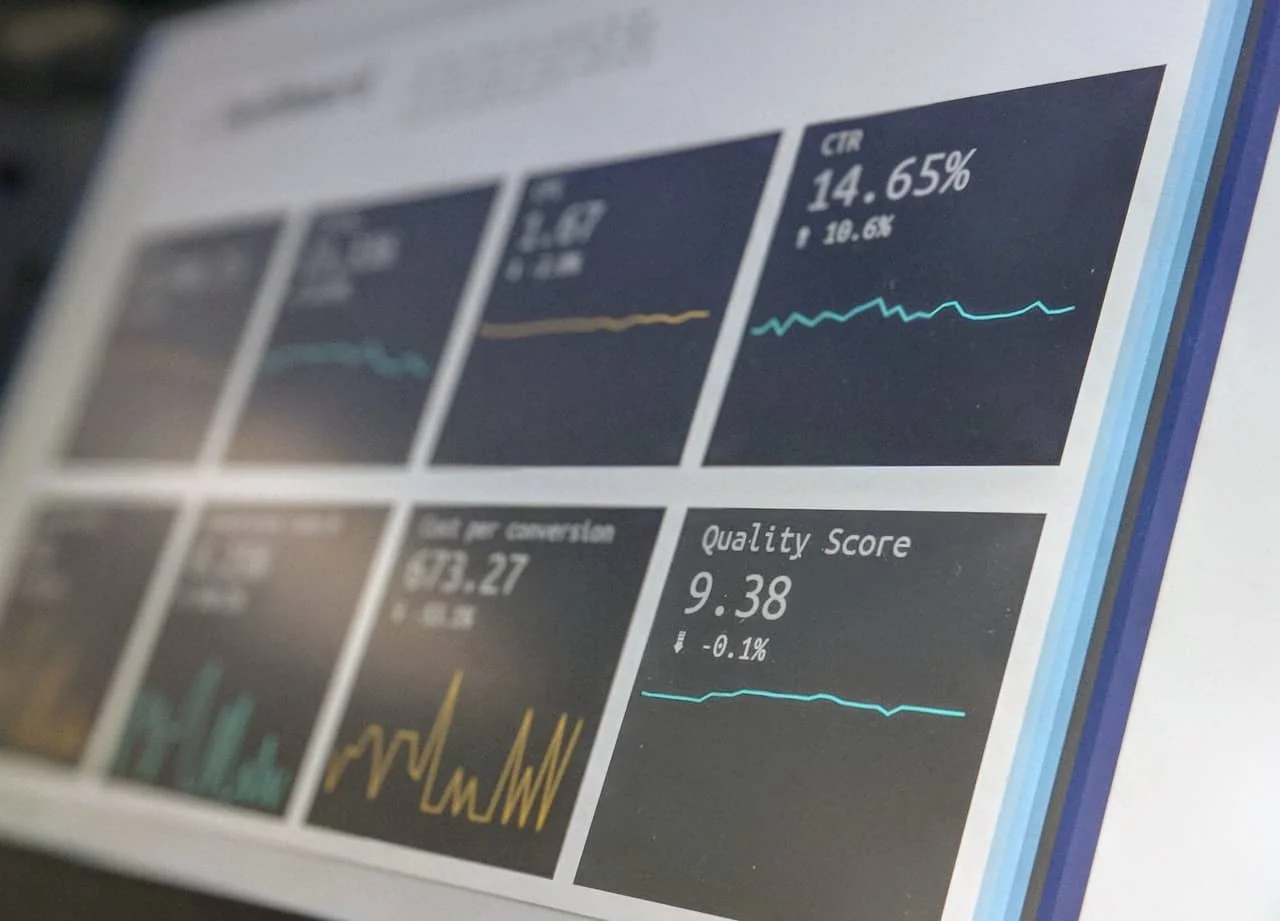Leadership vs Management: Traits, Differences & Responsibilities
In the realm of business and organizations, leadership and management play vital roles each with its own unique attributes, but understanding these roles is crucial for achieving success.
Below we explore the differences between leadership and management, highlight their commonalities, examine where they overlap, discuss how to measure their effectiveness, dissect the essential traits for success, and provide guidance for developing skills in both areas.
Leadership vs Management: Defining the Core Differences and Traits

Although not 100% exclusive to either role the traits below are more important to those in a leadership vs management position.
The 5 Core Leadership Traits
Vision - Effective leaders have a clear and compelling vision for the company’s mission and future. This vision serves as a guiding light for the organization, inspiring and motivating team members to work towards a common goal.
Innovation - Leaders are often at the forefront of innovation. They encourage creativity and are open to new ideas, pushing the organization to adapt and evolve.
Inspiration - Leadership involves inspiring and influencing others. Effective leaders have the ability to ignite passion and enthusiasm in their team members, encouraging them to give their best.
Empathy - Empathy is crucial for understanding the needs, concerns, and emotions of team members. It helps build trust and strong relationships within the team.
Courage - Leaders often face tough decisions and challenges. Courage is essential for a great leader, taking calculated risks and standing firm in the face of adversity.
Although not 100% exclusive to either role the traits below are more important to those in a leader vs manager position.

The 6 Core Management Traits
Organization - Managers excel in organizing human resources, tasks, and implementing processes. They create structured workflows that ensure efficiency and productivity.
Analytical Acumen - Effective managers are skilled at analyzing data and information. They use this analysis to make informed decisions and solve complex problems.
Attention to Detail - Meticulousness is a hallmark of management. Managers pay close attention to processes and details to maintain quality and consistency.
Result-Oriented Thinking - Managers focus on achieving specific, measurable results.
Goal Implementation - Implementclear goals - track progress and make adjustments to ensure objectives are met.
Clear Communication - Effective managers are adept communicators who provide clear instructions and expectations to their team members, ensuring everyone understands their roles and responsibilities.

Commonalities Between Leadership and Management
Aligned and Common Goals - Leadership and management converge in their commitment to achieve organizational goals and objectives. Both roles are dedicated to guiding the organization toward its intended destination.
Communication - Effective communication is crucial in both leadership and management. Leaders must articulate their vision clearly, while managers need to convey instructions and expectations to ensure efficient execution.
Decision-Making - Decision-making is a critical aspect of both roles. Leaders make strategic decisions aligned with their vision, while managers make operational decisions that impact day-to- day to day operations to-day activities.
Team Building - Leaders and managers are responsible for cultivating teams. Leaders focus on nurturing motivation and inspiration, while managers work to ensure teams have the necessary skills and resources for task accomplishment.
Adaptability - In a dynamic business environment, adaptability is essential for both leadership and management. Leaders adjust their vision, and managers adapt their strategies in response to changes.
Overlapping Areas of Management and Leadership
Strategy Execution - While great leaders may conceive grand strategies, it is the meticulous managers who ensure their effective execution. The successful implementation of strategies necessitates the collaborative prowess of both leadership and management.
Employee Development - Leaders nurture the potential of their team members, empowering employees, while managers provide the fertile ground for growth and improvement. Together, they form an ecosystem conducive to the flourishing of employee development.
Conflict Resolution - Conflicts are inevitable within any organization. Leaders and managers must collaborate to defuse these situations, each employing their unique skills to mediate and reach resolutions.
Performance Evaluation - The evaluation of individual and team performance falls within the purview of both leaders and managers. . Leaders tend to often focus on long-term potential, while managers scrutinize current productivity, collectively driving the pursuit of excellence.

Measuring Effective Leadership
How to measure effective leadership:
1) Employee Engagement - High levels of employee engagement serve as a litmus test for effective leadership. Employing surveys and feedback mechanisms unveils employee satisfaction and commitment, shedding light on the leader’s influence.
2) Goal Achievement - Leaders ought to be evaluated based on their aptitude for setting and achieving organizational objectives and goals. Scrutinizing whether the team progresses toward the envisioned destination offers insights into leadership efficacy.
3) Team Productivity - Leaders, at their best, kindle the flames of motivation within their teams, compelling them to perform at the zenith of their capabilities. Comparing the team’s productivity before and after a leader’s tenure unveils the leader’s impact.
4) Employee Turnover - Low employee turnover signals the success of a leader, indicating a contented and motivated team. It signifies that team members are invested in the leader’s vision and mission.
5) 360-Degree Feedback - Gaining a comprehensive view of a leader’s impact involves collecting feedback from all angles—peers, subordinates, and superiors. This panoramic view elucidates the leader’s strengths and opportunities for development.
Measuring Effective Management

How to measure effective management:
1) Goal Attainment - The hallmark of effective management lies in consistently meeting or surpassing established goals and targets. A manager’s ability to deliver on promises is a barometer of their competence.
2) Efficiency - Efficiency is the byword of effective management. It encompasses judicious resource utilization, cost control, and adept time management—each element evaluated to gauge a manager’s prowess.
3) Quality Control - Maintaining the imprimatur of quality is a sine qua non of effective management. A manager’s capability to uphold stringent quality standards and ensure the meticulous execution of tasks underscores their efficiency.
4) Employee Satisfaction - The success of a manager is mirrored in the job satisfaction and engagement levels of their team members. Contented employees who are motivated to perform reflect a manager’s prowess.
5) Problem Resolution - Managers are often at the vanguard of handling challenges, conflicts, and unforeseen issues. A low recurrence of problems is a testament to the manager’s competence in averting crises and finding lasting solutions.

5 Traits of an Effective Leader
Effective leaders possess a distinct set of traits for leading people that enables them to not only lead, but inspire and guide their teams toward a common vision. Here’s a deeper look at these leadership traits:
Vision - Vision is the ability to see a better future and articulate it in a way that motivates others. Leaders have a clear and compelling vision that serves as a North Star for the organization. This vision isn’t just a lofty goal but a practical roadmap that provides direction and purpose.
Communication - Effective leaders are masters of communication. They not only convey their vision with eloquence but also excel at active listening. Leaders provide clear guidance and expectations, ensuring that team members understand their roles and responsibilities. They foster open channels of communication, inviting feedback and ideas from the team.
Adaptability - In today’s rapidly changing business landscape, adaptability is a crucial trait. Leaders must be flexible and open to new perspectives. They adjust their plans when necessary, acknowledging that the path to success may require course corrections. This adaptability enables the team to navigate challenges and seize opportunities effectively.
Confidence - Confidence is an assurance that comes from a deep belief in one’s vision and abilities. Effective leaders inspire confidence in others, assuring them that challenges can be overcome and goals can be achieved through collective effort. It’s important to note that confidence should not be mistaken for arrogance; it’s a quiet and reassuring strength.
Accountability - Effective leaders lead by example, holding themselves accountable for their actions and decisions. Their integrity sets the standard for the entire team. Accountability isn’t about assigning blame but about taking responsibility. Leaders acknowledge when things go wrong, learn from mistakes, and take corrective actions. This fosters a culture of accountability within the team, where everyone is responsible for their contributions to the collective goal.

5 Traits of an Effective Manager
Effective managers possess a distinct set of traits that enable them to organize resources, make data-driven decisions, maintain quality, and ensure that goals are met.
Organization - Managers are exemplars of organization. Organizational structuring, tasks, processes, and resources are all organized with precision to optimize efficiency. Organizational skills are the backbone of a good leader and effective management, ensuring that every team member knows their role and that resources are allocated effectively.
Analytical Skills - Effective managers harness analytical acumen to make data-driven decisions and rigorously assess performance. Analytical skills enable managers to sift through data and information to identify trends, opportunities, and areas for improvement. This data-driven approach empowers managers to make informed decisions that contribute to the achievement of organizational goals.
Detail-Oriented - Meticulous attention to detail characterizes successful managers. They ensure that tasks are executed with precision, adhering to established standards. In the world of management, the devil is often in the details. Effective managers scrutinize processes, documentation, and outcomes to ensure accuracy and quality.
Result-Oriented Mindset - A relentless pursuit of tangible outcomes is the lifeblood of effective managers. They measure progress against established goals and targets to measure effective leadership. Managers set clear expectations and objectives, ensuring that the team’s efforts are aligned with the organization’s strategic goals. They monitor progress, track key performance indicators, and adjust strategies as needed to drive results.
Clear Directive Abilities - Managers are adept communicators who provide clear instructions and expectations to their team members, ensuring everyone understands their roles and responsibilities. Clear communication minimizes misunderstandings and promotes a collaborative work environment.
Unleashing Your Leadership Potential
To unlock your leadership potential, consider these steps:
Self-Reflection - Begin with self-discovery. Examine your values, strengths, weaknesses, and aspirations. Understand yourself to articulate your leadership vision and connect with others authentically.
Continuous Learning - Commit to lifelong learning. Stay updated on industry trends, leadership theories, and best practices. Continuous learning sharpens your skills and broadens your perspective.
Empathy Development - Invest in enhancing your empathy. Active listening, seeking to understand others’ perspectives, and demonstrating genuine concern for their well-being build trust and rapport.
Influencing Skills - Hone your communication skills, encompassing both conveying your vision and active listening to others. Foster open and transparent communication, creating an environment where ideas are shared and understood.
Leadership Experiences - Seek opportunities to lead within your current role or through volunteer work and community involvement. Practical experience is a crucible of leadership.
Seek Feedback - Actively seek feedback from colleagues, mentors, and team members. Be open to constructive criticism. Feedback provides insights into how your leadership is perceived and offers guidance on areas for improvement.
Adaptability - Embrace change as an opportunity for growth. Leaders who are adaptable can navigate uncertainty and change with resilience.

Unleashing Your Management Potential
To unlock your management potential, follow these steps:
Develop Organizational Skills - Augment your organizational prowess to effectively plan, organize, and execute tasks and projects.
Improve Analytical Abilities - Enhance your analytical skills to proficiently make data-driven decisions and meticulously evaluate performance.
Attention to Detail - Cultivate an unwavering attention to detail, ensuring that tasks are executed with meticulous precision and adhere to established standards.
Result-Oriented Mindset - Forge a mindset that fixates on achieving tangible outcomes, measuring progress against established goals.
Effective Communication - Mastery of clear and concise communication is the cornerstone of effective management - Articulate directives with clarity.
Time Management - Refine your time management skills to optimize productivity, not only for yourself but also for your team.
Problem-Solving Skills - Cultivate your problem-solving acumen to tackle challenges and obstacles, ensuring the smooth flow of operations.

How to Develop Leadership and Management Skills
Developing these skills involves ongoing effort and dedication:
1) Identify Your Strengths and Weaknesses - Start with self-assessment to understand where you excel and where you need improvement in leadership and management.
2) Set Clear Goals - Define specific, measurable objectives for skill development to provide direction and motivation.
Seek Feedback - Gather insights from colleagues, mentors, and superiors to gain clarity on your strengths and areas of growth.
3) Education and Training - Consider formal courses, workshops, or seminars tailored to management and leadership skills.
4) Learn from Role Models - Study the styles and strategies of successful individuals in your field.
5) Practice, Practice, Practice - Apply your skills within your current role and seize opportunities for additional responsibilities.
6) Embrace Challenges - Challenges are opportunities for learning and growth. Embrace them as part of your journey, and use them to develop resilience and problem-solving abilities.
In the world of business and organizations, leadership and management are not synonymous but harmonious forces that drive organizational success. The synergy between successful leadership and management forms the cornerstone of remarkable achievement.
Unlocking one’s potential in both leadership and management requires self-awareness, dedication, and a commitment to challenge the status quo and pursue important organizational initiatives that have the power to transform your organization and guide it toward enduring success.
Ready to elevate your organization’s success to new heights? Our expert coaches can provide personalized guidance & tailored strategies to optimize the performance of your leadership and management teams. Contact us today.














